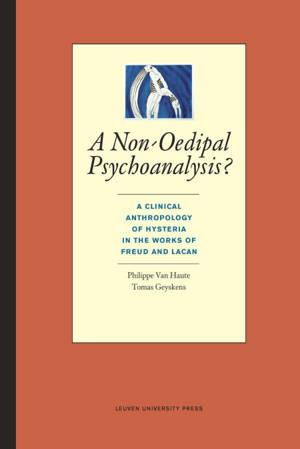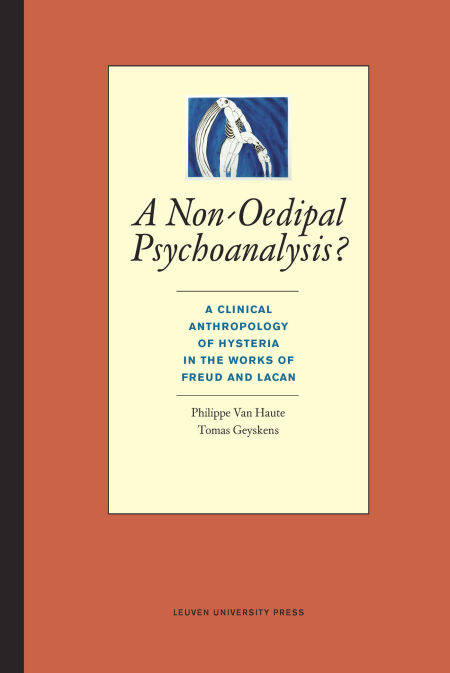
Je cadeautjes zeker op tijd in huis hebben voor de feestdagen? Kom langs in onze winkels en vind het perfecte geschenk!
- Afhalen na 1 uur in een winkel met voorraad
- Gratis thuislevering in België vanaf € 30
- Ruim aanbod met 7 miljoen producten
Je cadeautjes zeker op tijd in huis hebben voor de feestdagen? Kom langs in onze winkels en vind het perfecte geschenk!
- Afhalen na 1 uur in een winkel met voorraad
- Gratis thuislevering in België vanaf € 30
- Ruim aanbod met 7 miljoen producten
Zoeken
A non-oedipal psychoanalysis? E-BOOK
a clinical anthropology of hysteria in the works of Freud and Lacan
Philippe Van Haute, Tomas Geyskens
€ 26,00
+ 26 punten
Uitvoering
Omschrijving
The different psychopathologic syndromes show in an exaggerated and caricatural manner the basic structures of human existence. These structures not only characterize psychopathology, but they also determine the highest forms of culture. This is the credo of Freud's anthropology. This anthropology implies that humans are beings of the in-between. The human being is essentially tied up between pathology and culture, and 'normativity' cannot be defined in a theoretically convincing manner. The authors of this book call this Freudian anthropology a patho-analysis of existence or a clinical anthropology. This anthropology gives a new meaning to the Nietzschean dictum that the human being is a 'sick animal'. Freud, and later Lacan, first developed this anthropological insight in relation to hysteria (in its relation to literature).
This patho-analytic perspective progressively disappears in Freud's texts after 1905. This book reveals the crucial moments of that development. In doing so, it shows clearly not only that Freud introduced the Oedipus complex much later than is usually assumed, but also that the theory of the Oedipus complex is irreconcilable with the project of a clinical anthropology.
The authors not only examine the philosophical meaning of this thesis in the work of Freud. They also examine its avatars in the texts of Jacques Lacan and show how this project of a patho-analysis of existence inevitably obliges us to formulate a non-oedipal psychoanalytic anthropology.
This patho-analytic perspective progressively disappears in Freud's texts after 1905. This book reveals the crucial moments of that development. In doing so, it shows clearly not only that Freud introduced the Oedipus complex much later than is usually assumed, but also that the theory of the Oedipus complex is irreconcilable with the project of a clinical anthropology.
The authors not only examine the philosophical meaning of this thesis in the work of Freud. They also examine its avatars in the texts of Jacques Lacan and show how this project of a patho-analysis of existence inevitably obliges us to formulate a non-oedipal psychoanalytic anthropology.
Specificaties
Betrokkenen
- Auteur(s):
- Uitgeverij:
Inhoud
- Aantal bladzijden:
- 180
- Taal:
- Engels
- Reeks:
Eigenschappen
- Productcode (EAN):
- 9789461660596
- Verschijningsdatum:
- 7/04/2017
- Uitvoering:
- E-book
- Beveiligd met:
- Digital watermarking
- Formaat:

Alleen bij Standaard Boekhandel
+ 26 punten op je klantenkaart van Standaard Boekhandel
Beoordelingen
We publiceren alleen reviews die voldoen aan de voorwaarden voor reviews. Bekijk onze voorwaarden voor reviews.









